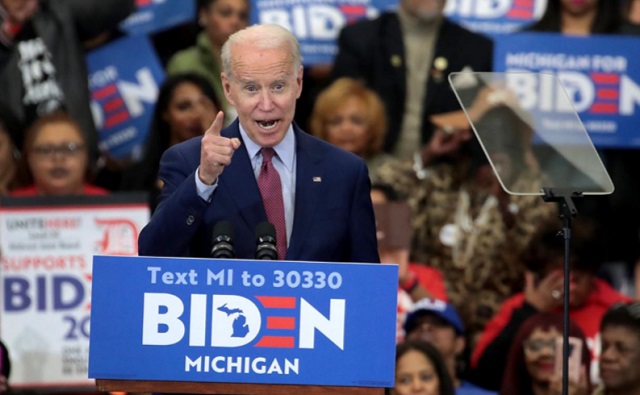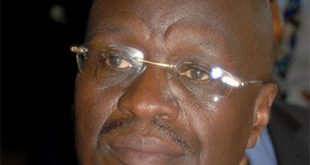
Criticism of police
Biden made police reform a significant part of his speech Tuesday. He called for Congress to pass a bill outlawing chokeholds; an end to transferring military equipment to police forces; a new national police oversight commission; and a review of training and de-escalation practices.
Trump, who has previously joked about and encouraged police use of force, has been more circumspect.
He called Floyd’s death a tragedy that should never have happened and said his administration had opened a civil rights investigation.
When it comes to controlling protests, Trump has used tougher language, matching his harder-line policy.
He’s called for governors to deploy the National Guard to control unruly crowds. He has tweeted about “vicious dogs” and “ominous weapons” waiting for protesters who breach the White House grounds.
Biden ridiculed that talk Tuesday. He said the president should be reading the Bible instead of posing with it in pictures, and also suggested he read the U.S. Constitution, to learn about love, tolerance and freedom of assembly.
“That’s hard work. But it’s the work of America,” Biden said.
He was referring to a Trump photo op this week that involved forcefully clearing protesters from an area outside the White House so the president could cross the street and stand outside a church, whose office had been burned during a protest, while holding up a Bible.
One other obvious difference on display Tuesday involved the pandemic, which has killed more than 106,000 people in the U.S.
As he arrived to speak at a podium, Biden pulled off a face mask, which he’s been wearing in public during the health scare.
Trump has avoided being photographed wearing one.
How it plays out politically
So, how will all this play out in the November election? It’s too early to say. There isn’t much polling since the protests broke out, and one new survey had some mixed findings.
Trump might appreciate some results of a Morning Consult poll of 1,624 voters, conducted between May 31 and June 1. A majority of respondents supported the idea of calling in the military — 58 per cent favoured it, while 30 per cent opposed it. A smaller plurality also supported how police have handled the protests.
Yet there are warning signs for Trump, already behind in most national polls.
Their overall conclusion? When asked if recent events made them likelier to support one candidate or the other, respondents, by a margin of 12 percentage points, answered Biden.
****
Alexander Panetta is a Washington-based correspondent for CBC News who has covered American politics and Canada-U.S. issues since 2013.
 The Independent Uganda: You get the Truth we Pay the Price
The Independent Uganda: You get the Truth we Pay the Price



